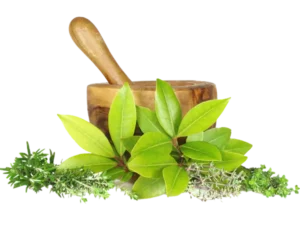At Sai Sanjivani, we provide clear and helpful insights on kidney disease and paralysis through our informational blogs. We are here to guide you with easy-to-understand tips and advice on managing your health through Ayurvedic care. Join us on this journey to better health and discover how you can improve your well-being today.
Whether you are looking for natural remedies or want to learn more about your health, our blog is here to help. Together, let's explore a holistic approach to living a healthier life!

[vc_row][vc_column width=”1/1″][vc_column_text]The kidneys play a crucial role in the human body, serving as a prominent organ responsible for multiple functions that regulate and maintain bodily processes. Their primary function is to eliminate toxins, such as blood urea and serum creatinine, from the body. Any damage to this vital organ can lead to a decline in overall health. Unfortunately, with the rapid changes in our lifestyle, kidney diseases have become increasingly prevalent in recent times.
One of the primary causes of kidney disease is high blood pressure, also known as hypertension. This condition can cause severe damage to the blood vessels and filters in the kidneys, making it difficult for them to eliminate toxins. Consequently, harmful levels of fluid and waste may accumulate in the body. It is crucial to manage hypertension to prevent further damage to the kidneys.
What is Creatinine?
Creatinine is a waste product that is present in the bloodstream and is produced by our muscles during physical activity. The amount of creatinine produced is directly proportional to the muscle mass in our body. The levels of creatinine in the blood are indicative of the frequency at which our kidneys are removing this waste product. As creatinine is a waste product found in the blood, it is the kidneys’ responsibility to filter it out of our system.
Typically, men with healthy kidney function have creatinine levels ranging from 0.6 to 1.2 mg/dL, while healthy women have levels ranging from 0.5 to 1.1 mg/dL. The reason for the difference in these ranges is that women typically have lower muscle mass than men, which affects the amount of creatinine produced in their bodies.
It is well-known that for the body to function optimally, it is essential to keep the blood free of toxins. Elevated levels of creatinine and other waste products in the blood can pose a severe risk to the body and increase the likelihood of developing life-threatening conditions such as uremia. For those who seek to eliminate toxic substances from their body using Ayurveda, Ayurvedic treatment for creatinine is a highly effective treatment option.
What are the Causes of High Creatinine Levels?
Blood tests can be useful in measuring creatinine levels, but to confirm whether a high level of creatinine is temporary or not, doctors usually conduct three tests. Elevated creatinine levels may occur temporarily due to certain medications that can impair kidney function, as well as supplements and foods that can increase the risk of such elevation.
Consuming excessive amounts of protein or engaging in intense workouts can also increase the risk of high creatinine levels.
However, only when several tests indicate abnormal creatinine levels is it considered a potential indicator of reduced kidney function.
Occasionally, a severe infection may impact kidney function, while poor blood circulation, reduced blood flow to the kidneys, or high blood pressure can also be contributing factors.
There are several other reasons why someone may have high levels of creatinine, including:
- Dehydration
- Kidney damage or disease
- Urinary tract obstruction
- Muscle injury or disease
- Certain medications
- Excessive protein intake
- Medical conditions such as rhabdomyolysis, where damaged muscle tissue breaks down and releases creatinine into the bloodstream
If your kidney function is low and your creatinine levels are high, it’s crucial to collaborate with your healthcare provider and acquire knowledge about strategies to manage the condition. This approach can be an effective way to address elevated creatinine levels using natural methods.
Relation between Creatinine & Chronic Kidney Disease (CKD)
Protein consumption triggers the production of creatine, a byproduct synthesized by the liver. Subsequently, the bloodstream delivers creatine to the muscles where it is converted into energy. The muscles utilize the required amount of creatine for energy, while the excess is metabolized into creatinine, which is then excreted as waste.
Creatinine is a waste product that the body needs to eliminate, and the kidneys are responsible for removing it from the body through urine. However, if there is any damage or disease in the kidneys, they may struggle to carry out this elimination process effectively, resulting in an increase in waste levels.
When creatinine levels are excessively high, doctors often recommend dialysis. However, elevated creatinine levels are just one factor to consider when deciding whether or not kidney treatment is necessary.
Low Kidney Function Symptoms
In some cases, individuals with impaired kidney function may not exhibit any symptoms until the disease has progressed to an advanced stage, even if their creatinine levels are elevated.
- Swelling in the hands, feet, or face
- Decreased urine output or difficulty urinating
- Shortness of breath or difficulty breathing
- Fatigue or weakness
- Nausea or vomiting
- Confusion or disorientation
- High blood pressure
- Abnormal heart rhythms
- Muscle cramps or twitches
- Itching or skin rash
How Frequently should one get a Creatinine Test?
Creatinine tests are conducted using both blood and urine samples since creatinine is present in both. These tests can also help determine other functional parameters of the kidneys.
- Serum creatinine
- A serum creatinine test is performed to determine the amount of creatinine present in the bloodstream. This measurement enables your doctor to determine your glomerular filtration rate based on your age and gender. By analyzing the results of the serum creatinine test, your doctor can determine the stage of chronic kidney disease you are in.
- Creatinine clearance
- Creatinine clearance is a test that measures kidney function by determining how much creatinine is eliminated from the body within a specific period. The test involves collecting urine over a 24-hour period, after which creatinine clearance is calculated by measuring serum creatinine and glomerular filtration rate.
- Understanding abnormal results of a creatinine test
- A low level of glomerular filtration rate or creatinine clearance indicates that your kidneys may be diseased. The damage to the kidneys can either be acute or chronic. Therefore, it is recommended to undergo repeated tests over time to monitor the presence of kidney disease.
In many cases, kidney function declines naturally with age, and individuals may lose 30 to 40% of their kidney function without experiencing significant health issues.
Doctors determine the severity of kidney disease based on the stage of chronic kidney disease, which is divided into stages based on the glomerular filtration rate (GFR). These stages include:
Stage 1: A GFR greater than 90 indicates normal kidney function.
Stage 2: A GFR between 60 and 89 indicates mild kidney damage.
Stage 3: Moderate kidney damage occurs in this stage, with a GFR ranging from 30 to 59.
Stage 4: This is the severe stage, with a GFR ranging from 15 to 29.
Stage 5: This is the stage when kidney failure treatment is required.
How can Ayurveda be helpful in this problem?
- Strengthening the weakened bodily system
- Preventing disorders
- Treating diseases with medication
The treatment process involves repairing the damaged renal tissue to an optimal level using herbs to normalize the levels of blood urea and serum creatinine. The next step is to repair damaged nephrons to a desired level to permanently control the levels of blood urea and serum creatinine.
In the second step, the levels of various electrolytes such as sodium and potassium are maintained to required levels in the blood of the kidney patient, which can help save their life.
The third step involves restoring blood urea levels in the body, which our medication acts quickly towards. The levels of toxins in the body are generally examined by the level of serum creatinine, and a decrease in serum creatinine levels indicates that toxins in the body are diminishing. Typically, serum creatinine levels of patients start decreasing from the 7th to 15th day of treatment.
Consult our certified doctors for any type of kidney disease.[/vc_column_text][/vc_column][/vc_row]




